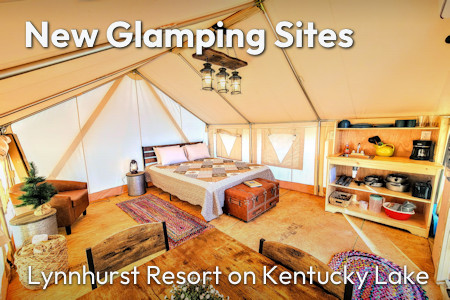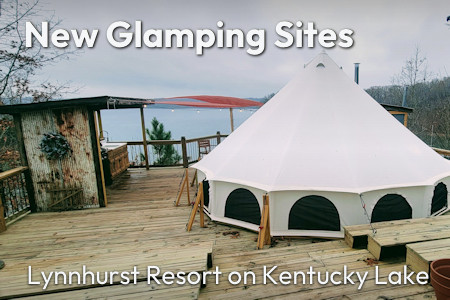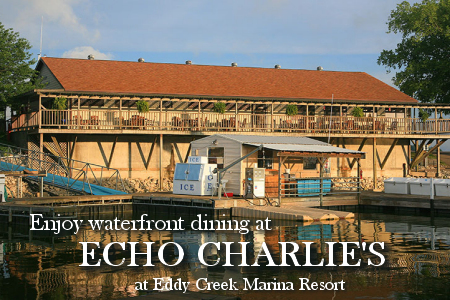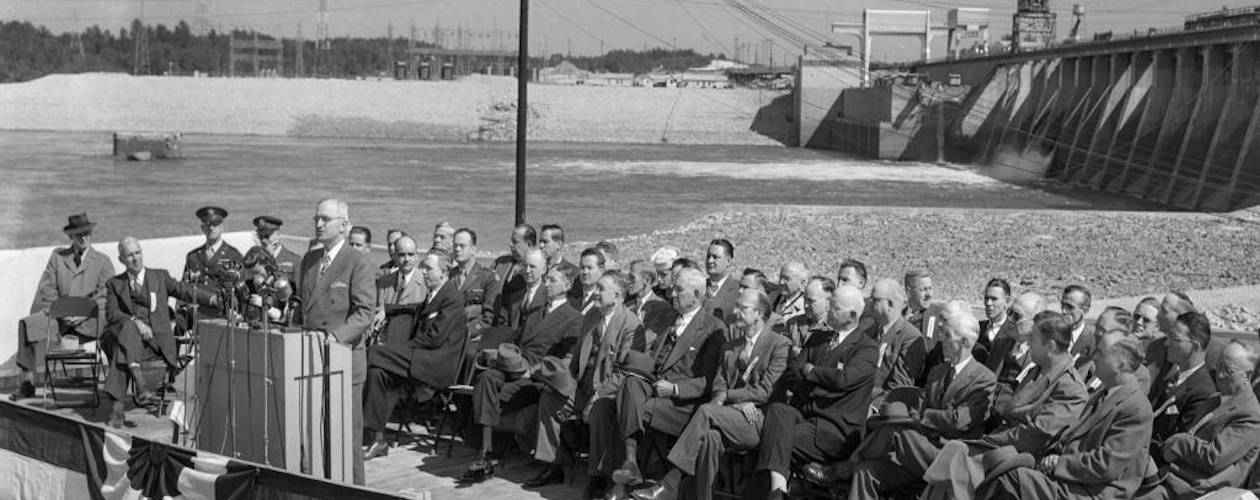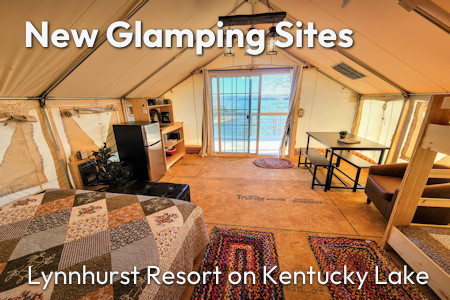History, Museums & Art
Tennessee River Freshwater Pearl Museum
Washboard mussels produce freshwater pearls and are rarely found naturally from these living animals. However, they are grown at the only freshwater pearl-culturing farm operation in North America. The organic gem stone-culturing is located at Birdsong Creek, an embayment of Kentucky Lake in Camden, just nine miles north of Interstate 40.
The Tennessee River Freshwater Pearl Museum, Farm, Tour and Jewelry Showroom is located at Birdsong Resort and Marina in the new Pearl Museum/Community Center. Call (731) 584-7880 to make appointment to visit the Pearl Museum. Visit their website at TennesseeRiverPearls.com for more information.
Wrather West Kentucky Museum
Murray State University's first building, erected in 1924, received extensive renovations and was rededicated as the Wrather West Kentucky Museum in 1982. The museum features several permanent and changing exhibits. West Kentucky history abounds at the museum which highlights the social, economical, and cultural development of this area.
Wrather West Kentucky Museum is open Monday through Friday, 8:00 a.m. to 4:30 p.m. The facility is closed on Saturdays and Sundays and all university holidays. For more information, please call (270) 809-4771. It is located on the campus of MSU on University Drive.
Paris-Henry County Heritage Center
The Paris-Henry County Heritage Center, which has been called "the crown jewel of Paris", was built in 1916 by philanthropist Col. O. C. Barton. The beautiful mansion retains its original stained-glass windows, marble staircase and floors, ceiling and wall paintings, and mahogany woodwork. The Paris-Henry County Heritage Center serves as a museum, an archive, and a research and educational center.
You can also partake in the Historical Walking Tour. T his tour is a historical audio-taped walking tour of west Tennessee's oldest incorporated city, Paris. Entitled "Paris Revisited," this lively recorded tour will take you through downtown Paris, the North Poplar Street Historic District and the Old City Cemetery all of which are listed on the National Register of Historic Places. For more information, call (731) 642-1030.
Lyon County Museum
The Lyon County Museum is also a favorite for historical buffs. The museum is located in Old Eddyville and features all sorts of exhibits, murals, maps, a replica iron furnace, and so much more. The Lyon County Museum is open on a seasonal basis. For more information, contact the Lyon County Tourist Commission at (270) 388-5300.
Murray Art Guild
The Murray Art Guild features art sales and shows, schedules classes, conducts workshops, and has painting classes. Located at 500 North 4th Street in Murray, The Murray Art Guild is the place for artists in Calloway County. The Guild is open Tuesday, Wednesday, Friday and Saturday from 10:00 a.m. to 3:00 p.m. For more information, contact The Murray Art Guild at (270) 753-4059.
Clara M. Eagle Art Gallery
This art gallery is located on the sixth floor of the Price Doyle Fine Arts Center at 15th & Olive streets on the campus of MSU. The Clara M. Eagle Art Gallery features changing contemporary art exhibitions and student art shows.
Curris Center Gallery
The Curris Center, the student center for Murray State University, features its own art gallery on the first floor. Admission is free and groups are welcome with prior notice. For more information on exhibitions and hours of operation, call (270) 809-3052.
Historical Overview
The history of the Kentucky Lake area offers unique perspective on how our region has changed over the last several decades.
For instance, did you know that entire towns, one with over 2500 residents, had to be completely relocated when the lakes were built? And did you know that thousands of people were relocated when the Tennessee Valley Authority (TVA) purchased over 170,000 acres of land to form a national recreation area?
Something of this magnitude doesn't seem possible. But it happened, beginning in 1938 and lasting over the next 30 years.
Kentucky Lake
The creation of today's Kentucky Lake began way back in the 1920s when frustrations grew with frequent flooding on the Tennessee River causing problems for residents in the Tennessee Valley. Additionally, most rural residents in this region outside of towns didn't have electricity.
Efforts began creating a hydroelectric dam somewhere along the Tennessee River in western Kentucky to help solve these problems. In the late 1920s, most locals wanted the dam at Aurora, and the Tennessee Valley Authority (TVA) considered this area to be a potential site until around 1937-38. The present-day site at Gilbertsville was chosen.
TVA began constructing Kentucky Dam in 1938 and completed it in 1944. The reservoir behind the dam became known as Kentucky Lake, stretching 184 miles and covering 160,000 acres. Today, the dam generates electricity for thousands of households in the region.
Lake Barkley
A series of locks and dams built in the early 20th century along the Cumberland River was generally meant for navigation but not flood control. Some of the worst flooding in the country occurred along the river area frequently, including the Flood of 1937 which devastated communities along the river.
After the creation of Kentucky Dam in 1944, residents along the nearby Cumberland River began calling for a similar dam. They got their wish in the late 1950s, when the US Army Corps of Engineers announced the creation of a new dam just two miles east of Kentucky Dam.
In 1964, Lake Barkley was created when the gates at Barkley Dam were closed. Many communities had to be completely relocated, including the towns of Kuttawa and Eddyville. Railroads, major US highways, homes, cemeteries - all had to be moved to make way for the new lake. Today's City of Eddyville along US 62 is totally new, having moved to it's location in the early 1960s. Most of the old town is underwater and gone.
Land Between The Lakes
During the creation of Lake Barkley, TVA realized Lake Barkley, Kentucky Lake, and the connecting canal between the two dams would create a peninsula. Known to the locals as "Between The Rivers", this stretch of land was very rural, somewhat isolated and impoverished.
TVA began an effort to create a vast recreation area known as "Land Between The Lakes" (LBL) and began purchasing property from landowners in the area.
The move by TVA was quite controversial, with several families not wanting to sell their property. However, eminent domain prevailed and the last families were relocated in the late 1960s.
Evidence of the former homesites, churches, businesses and roads are everywhere in LBL. There are dozens of cemeteries that remain, which are maintained by families and volunteer groups.
Today, Land Between The Lakes is a 170,000 acre National Recreation Area with several attractions, campgrounds and historical places of interest. There are no businesses or residents in Land Between The Lakes, so it is a great place to really get away from it all and experience nature.

